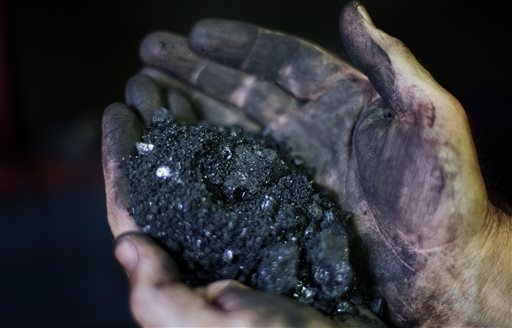Who really runs West Virginia?
February 26, 2016 by Ken Ward Jr.
The talk of the town here in Charleston remains out ongoing legislative session, and there’s rightfully a lot of talk about some of the initiatives — right to work, hating gay people, etc. — that the new Republican majority seems to think are more important than the current budget crisis and the real long-term challenges facing our state.
But I’ve written before about how West Virginia’s public policies aren’t really governed by Democrats or Republicans. That’s not who has been running our state of all these years.
If you don’t believe me, I would encourage you to consider a few happenings up at the statehouse these last few days.
First look at the vote on SB508, the bill to protect oil and gas drillers from certain kinds of lawsuits by residents who think their new neighbors aren’t so much fun after all. It passed 20-12, with support from some Democrats — like Kanawha County Senator Corey Palumbo, who seems surprisingly irony-impaired about the whole thing.
Second — and even more interestingly — look at the vote on SB565, the legislation to weaken the state Department of Environmental Protection permitting of natural gas drilling. DEP Secretary Randy Huffman — hardly an enemy of the natural gas industry — doesn’t think this bill is a good idea. But only one Democrat — Sen. Jeff Kessler — voted against it.
Some Democratic leaders would like to make it sound like they are with the surface landowners, citing concerns about the “forced pooling” legislation. So why did SB508 get its share of “no” votes, but SB565 face opposition only from Sen. Kessler?
Well, that’s because the trial lawyers are against SB508 and have generated attention and opposition. But SB565 is arguably more important to surface landowners — it’s aimed at putting permits in place that would prevent damage and nuisance for residents before they occur, not just protecting the right to sue after it happens.
Then there’s what’s happening with taxes on the coal industry:
The House of Delegates voted overwhelmingly Thursday to give major tax cuts to the coal and gas industries, approving a proposal from Gov. Earl Ray Tomblin that helps balance this year’s budget while costing the state about $110 million annually beginning next budget year.
The bill (HB 419) would remove the “excess” severance taxes on coal and gas production that were put into place in 2005 to pay off old debts related to the state’s workers’ compensation fund.
Especially this part:
“This is about a promise that was made 10 years ago, when we stepped up and the other industries stepped up to help privatize workers comp,” said Bill Raney, president of the West Virginia Coal Association.
That’s the argument Tomblin has made and it was the argument made in the Senate where the bill passed unanimously.
All but forgotten, of course, is the fact that it was cheating by the coal industry — not to mention dangerous operations that got a lot of workers hurt — that led to the workers compensation financial debt in the first place.
Finally, there’s another great story by the Gazette-Mail’s David Gutman, which detailed how things really work at the Legislature. At issue was a bill that would overturn a court victory for citizens who blocked a natural gas pipeline company from surveying on their private property without permission:
Sen. Ron Miller, D-Greenbrier, said he had a problem with the Legislature changing the law explicitly in response to the circuit judge’s ruling. He said many of his constituents were farmers who lived on land passed down by their ancestors.
Sen. Miller convinced lawmakers to change the bill so that pipeline companies would need a certificate from the Federal Energy Regulatory Commission before they could conduct such surveys. It was approved quickly, on a unanimous vote. Then this happened:
… Committee legal counsel Tom Kleeh said he thought there was someone from the gas industry who wanted to speak about the amendment.
The committee then called on Bob Orndorff, a lobbyist for Dominion Resources, to discuss the amendment that they had just approved.
Orndorff told them that gas companies have to do their surveying before they get the federal pipeline permit.
“What the amendment did was pretty much nullify the bill,” Orndorff said.
The committee then quickly voted to rescind its approval of Miller’s amendment. It voted on the amendment again, this time soundly defeating it, and then voted to pass the bill on to the full Senate, where it could be passed early next week.
So you tell me … who is running West Virginia?

 Subscribe to the Coal Tattoo
Subscribe to the Coal Tattoo
